ON THIS PAGE
CONFERENCE
Following the success of the previous editions of the “International Conference on Microplastic Pollution in the Mediterranean Sea” – µMED – the Local Scientific Committee and International Advisory Board are pleased to announce the IV edition of the mMED Conference, which will take place in Ischia (NA), Italy, from 19th to 22nd October at the Hotel Continental.
The µMED is a leading event on microplastic pollution, building on the previous successful editions. The conference brings together experts from diverse disciplines, including the scientific and industrial sectors, policy makers and environmental organizations, to explore all aspects of micro- and nanoplastic pollution. The conference offers a valuable opportunity to share the latest developments, highlight recent advancements, and identify innovative materials, technologies and strategies to detect and mitigate this pressing environmental challenge.
To deepen our understanding of micro- and nanoplastic pollution, the main topics of the IV µMED conference have been expanded to encompass a broad range of multidisciplinary fields, various environmental compartments, and issues related to human health.
The IV µMED will be held in presence, giving participants the opportunity to present their work and engage in face-to-face discussions.
We are pleased to announce that during the conference, prizes sponsored by MDPI Microplastics will be awarded for outstanding scientific contributions:
2 Best Oral Presentation Awards (300 EUR each)
1 Best Poster Award (300 EUR)
In addition, all award winners will receive a free paper quota (subject to peer review) in Microplastics (2026).
We are proud to share that Microplastics recently received its first Impact Factor of 5.1 and a CiteScore of 6.8 this summer.
CONFERENCE TOPICS
1. Analysis of micro- and nanoplastics, encompassing monitoring approaches, sources, environmental distribution (freshwater, marine, air, sediment, compost and soil), fate, ecological effects, and their role in the adsorption and transport of pollutants.
2. Development and implementation of innovative and sustainable solutions to address plastic pollution, including mitigation approaches, remediation technologies, marine plastic recovery and recycling, waste valorisation into chemicals or fuels, green polymer synthesis, enhanced degradation/biodegradation of plastics and micro/nanoplastics, and safe and sustainable by design strategies.
3. Impacts of micro- and nanoplastics on organisms and ecosystems, including their accumulation and transfer to the food chain.
4. Effects of micro- and nanoplastics on human health, including their interactions with biomolecules, cellular uptake, biodisposition, exposure and risk analysis.
5. Environmental and health policies, public awareness and perceptions, socio-economic and environmental impact.
LOCAL SCIENTIFIC COMMITEE
IPCB-CNR
Maurizio Avella
Roberto Avolio
Edoardo Bemporad
Daniela Capuano
Rachele Castaldo
Mariacristina Cocca
Emilia Di Pace
Maria Emanuela Errico
Gennaro Gentile
Federico Olivieri
DICMAPI-UNINA
Veronica Ambrogi
INTERNATIONAL ADVISORY BOARD
Hamid Amsil, National Centre for Nuclear Energy, Science and Technology (CNESTEN) – MA
Luigi Capozzi, Lancaster University – UK
Giampaolo Colavita, University of Molise – IT
Andrea Giuseppe De Lucia, IAS CNR – IT
Laura Eleonora Depero, University of Brescia – IT
Roberto Fattorusso, Università degli Studi della Campania Luigi Vanvitelli – IT
Stefania Federici, University of Brescia – IT
Margherita Ferrante, University of Catania – IT
Anita Grozdanov, Saints Cyril and Methodius University in Skopje -MK
Jes Vollertsen, Aalborg University – DK
Uros Novak, National Institute of Chemistry – SL
Pasquale Iovino, Università degli Studi della Campania Luigi Vanvitelli – IT
Nicolas Keller, Institute of Chemistry and Processes for Energy, Environment and Health CNRs/UdS – FR
Antonia Praetorious, University of Amsterdam – NL
Joana C. Prata, University Institute of Health Sciences – PT
Edoardo Puglisi, Università Cattolica Del Sacro Cuore – IT
Jean Marie Raquez, University of Mons – BE
Serena Santonicola, University of Molise – IT
François Galgani, French National Institute for Ocean Science and Technology – FR
Milica Velimirovic, Flemish Institute for Technological Research – BE
Nanna Hartmann, Technical University of Denmark – DK
important dates
Extended to 15 th July 2025
Abstract submission deadline
Extended to 31st July 2025
Notification of contribution acceptance
Extended to 1st September, 2025
Early-bird registration deadline
15th September, 2025
Draft program available
30th September, 2025
Extended abstract submission deadline
19th October, 2025
Opening of the Conference
Early-bird registration is recommended.
INVITED SPEAKERS
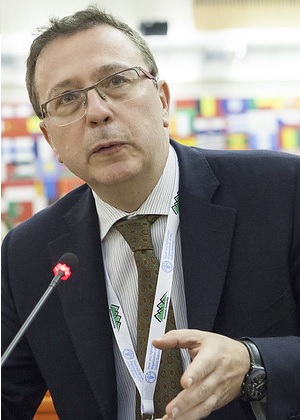
Grammenos Mastrojeni
A member of the Club of Rome, Diplomat, professor, and writer, Grammenos has pioneered research and action on societal, geo-strategic and economic impacts of environmental degradation. Until August 2019 was Coordinator for the Environment and Head of the Science-Policy Interface with Italian Development Cooperation; MFA head negotiator on water, lands, and oceans, and member of the Delegations to UNFCCC and UNCBD. Co-Chair of the G7 Group on Climate and Fragility, Chair of the UN Mountains Alliance, Co-Chair of the Global Islands Partnership. Currently, Senior Deputy Secretary General of the Union for the Mediterranean, in charge of Energy and Climate Action.
Professor of Environment and Geo-strategy at various think-tanks and universities, and member of various scientific boards, Grammenos authored numerous articles, official reports, and six books about human impacts of environmental degradation.
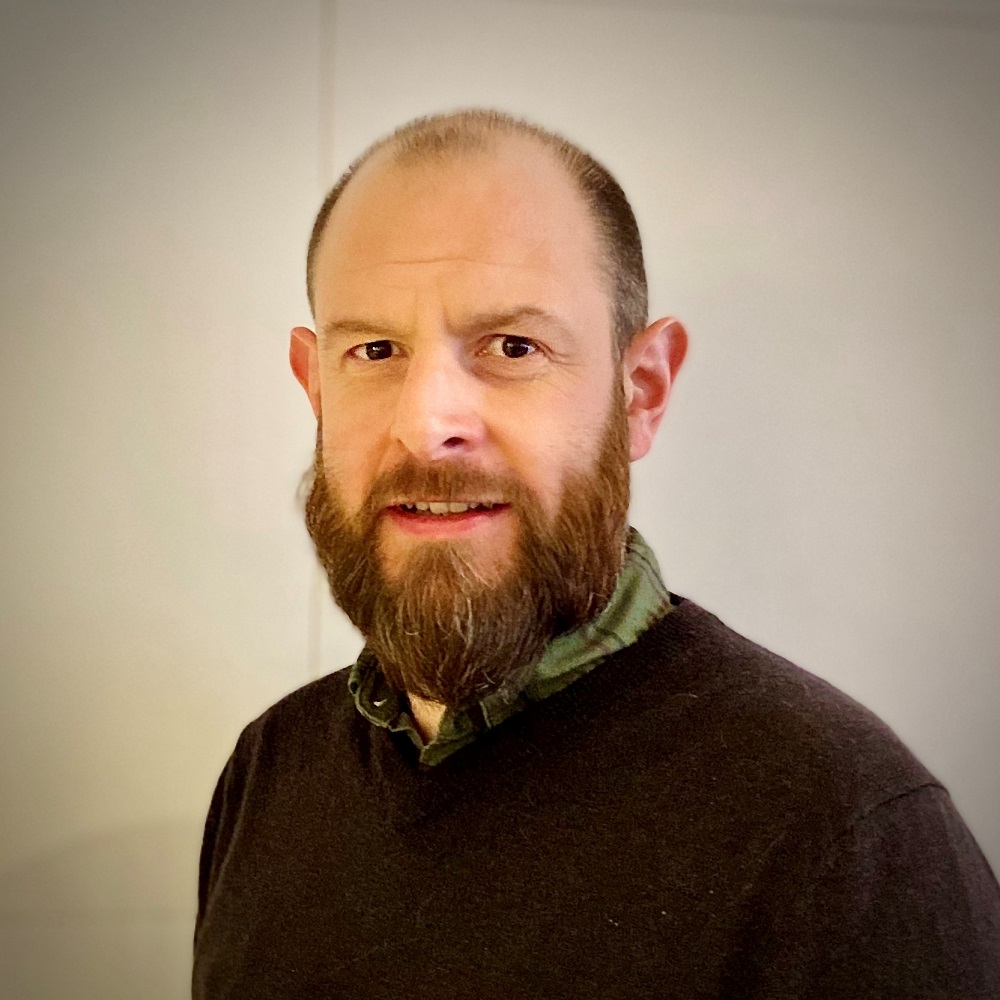
Andy Booth
Based in the Department of Climate and Environment at SINTEF Ocean, Norway, Dr. Andy Booth is a Chief Scientist within the field of environmental chemistry. He has a background in developing analytical approaches and studying the fate and effects of contaminants such as micro- and nanoplastic, nanomaterials, persistent organic pollutants, chemicals of emerging concern, and crude oil. Recently, he has focused on investigating the degradation of plastic materials and the leaching of plastic-associated chemicals. He collaborates closely with researchers from other disciplines, including toxicology, microbiology, materials science and the social sciences. He is an active member of the national and internal research community on plastics, being a member of the scientific board of the MICRO conference series, an expert member for microplastic in the EU Marine Strategy Framework Directive Technical Group on Marine Litter, an active member of the AMAP Litter and Microplastics Expert Group (LMEG) and co-chair (2017-2021) of the International Council for Exploration of the Seas Working Group on Marine Litter.
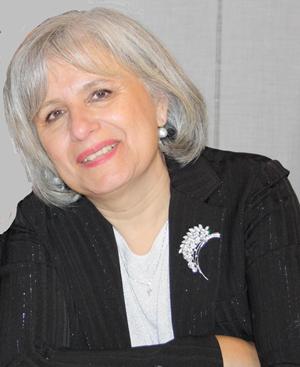
Margherita Ferrante
Margherita Ferrante, graduated in Medicine and Surgery and in Biology, specialist in Hygiene and Preventive Medicine and in General Pathology, Full Professor in General and Applied Hygiene, Head of the Laboratory of Environmental and Food Hygiene (LIAA) at the University of Catania and Director of the Complex Operating Unit of Hospital Hygiene of the Polyclinic “G. Rodolico-San Marco” CT and of the Integrated Tumor Registry CT-ME-EN. Member of the Environment and Health Task Force of the Ministry of Health. Former coordinator and now member of the restricted board of the Health and Environment working group of the S.It.I., currently coordinates the CIRS, and is a member of the Tavolo di Roma, national consultative body of the Chamber of Deputies and of IRACE. He is President of the National Scientific Academy of the Movimento Azzurro, member of the Management Committee of Metals and Related Substances Specialist Group of the IWA, Member of the restricted Board of FESTEM and member of the AISETOV board. Member of the IWWG, expert member of Health and Environment, designated by the University of Catania, within the Task Force of the S.R.P.S. of the DASOE Sicily Region, Director of CRIAB, President, Director and member of numerous commissions and doctorates of the University of Catania. Tutor in national and international doctorates. Present in the long list of scientific experts of the Ministry of Research and the Ministry of Health as well as of the Sicily Region. Co-author of the Italian and international patent “Method for the extraction and determination of microplastics in samples with organic and inorganic matrices”. He has received numerous awards and recognitions, including: Marquis Who’s Who Award for having contributed to the field of medicine 2012; “Gianfranco Merli” Environment Award 2019. Movimento Azzurro and MIPAAF; ITWIIN Award 2022 Special Mention for Support to Innovation; Rosa d’argento Award 2023 for scientific research, Garitta Award 2024 in the Medicine and Research sector, Special Mention for the career of women doctors 2024 of Arca Etrusca and the Municipality of Catania, Muna Med-Life Istanbul Award 2024/12/10, Fidapa Award 2024/12/15.
Author of over 800 publications including books, book chapters and indexed and impacted National and International journals. Editor in several International Impact Journals including ER (Elsevier), JTEMB (Science Direct), IJERPH (MDPI), JFNR (Sciepub), World Academy of Sciences Journal (Spandidos), AEPH (MedDocs Publishers), Joint Editor of the IWA newsletters. SCOPUS scientific indicators: HIndex 56; works n. 312; Citations 11001.
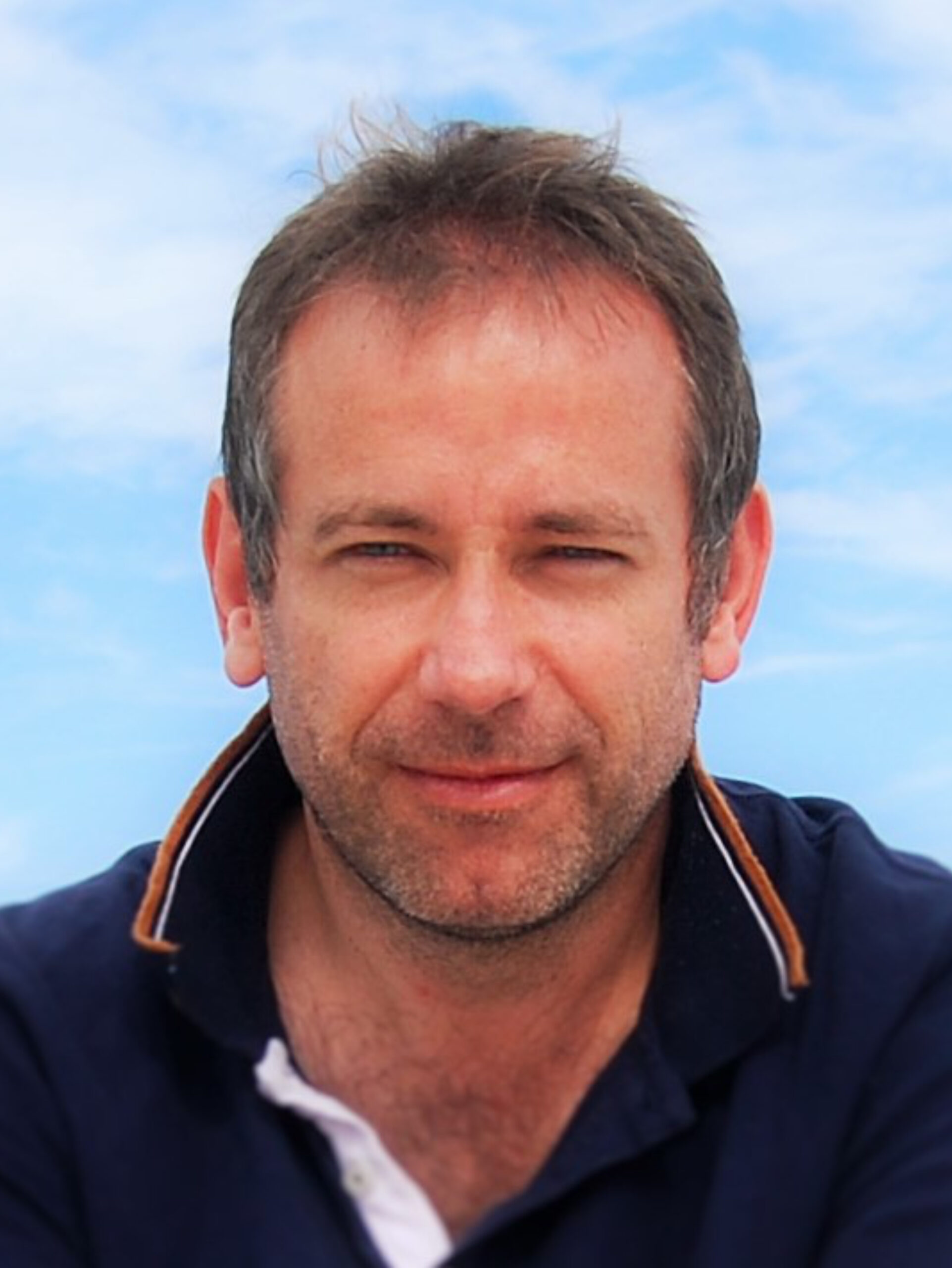
Nicolas Keller
ICPEES – CNRS / University of Strasbourg, France
Nicolas Keller is CNRS Research Director at the Institute of Chemistry and Processes for Energy, Environment and Health (ICPEES) at the University of Strasbourg, France. He obtained his PhD in catalysis and materials chemistry in 1999 from the University of Strasbourg. He completed a postdoctoral fellowship at the Fritz Haber Institut of the Max Planck Gesellschaft in Berlin, and was appointed to the CNRS in 2001. Throughout his career, he served as JSPS invited professor at AIST in Tsukuba (Japan) in 2009, and more recently as invited professor at the Jagiellonian University in Krakow in 2020. He has co-authored over 170 scientific papers and 13 patents, and was awarded in 2016 by the Simone et Cino Del Duca Foundation under the aegis of the French Science Academy. He chaired the 9th European Meeting on Solar Chemistry and Photocatalysis: Environmental Applications (SPEA9) in 2016 and the 8th International Conference on Semiconductor Photochemistry (SP8) in 2023.
His research primarily focuses on the design and implementation of light-driven heterogeneous catalysts for energy and environmental transitions, and he is currently grant coordinator for the PRIORITY European COST Action on Plastics Monitoring, Detection, Remediation, and Recovery.
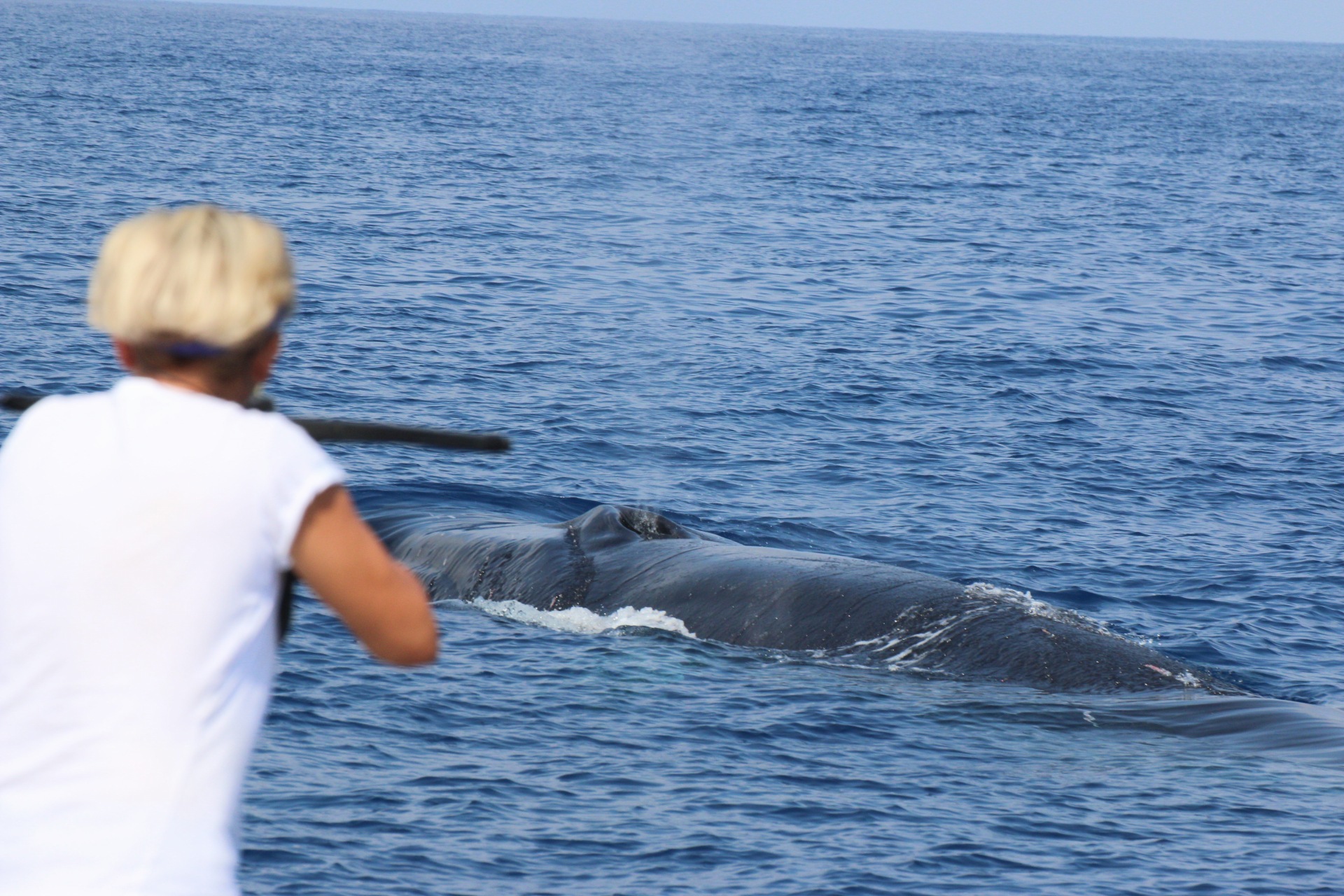
Mariacristina Fossi
M.C. Fossi is globally recognized for her innovative and groundbreaking contributions to marine ecotoxicology and she is the Scientific Director of the UNISI Biomarker Laboratory-Plastic Busters (https://plasticbusters.unisi.it/). Over the past thirty years she has conducted essential research to understand how legacy and emerging contaminants (ECs), including microplastics, affects the health of marine organisms, leading to greater awareness and solutions to protect marine biodiversity. Her scientific career has been marked by a series of significant breakthroughs both in terms of the topic addressed and the methodologies used, which were often unconventional:
- Early 1990s: by collaborating with the world’s leading ecotoxicologists (Prof. M. Depledge, L. Shugart, M. Moore), she made a fundamental contribution to the development of the biomarker approach in ecotoxicology
- Late 1990s: she developed innovative Non-Destructive Biomarker techniques for studying endangered species (marine mammals, birds, reptiles) in a non-lethal way, publishing the first book in the world on this topic. These diagnostic tools are internationally acknowledged as golden standards. Thanks to her work on skin biopsies, she is a world reference for the assessment of ecotoxicological risk in cetaceans.
- Since 2000, she has made a key contribution within the International Whaling Commission in fighting against whaling for scientific purposes.
- In 2001 she published the first papers on effects of Endocrine Disruptors in Med marine top predators.
- In 2012 she provided the first evidence worldwide on the effects of microplastics on baleen whales opening to a new trend topic in science.
- Since 2013 she pioneered the groundbreaking idea of linking the northern and southern Med in the fight against marine litter by coordinating the “Plastic Busters initiative” (PB) devoted to monitoring and mitigating the impact of ML in the Med. PB was elected as UN SDSN-Med and UfM Flagship Project.
- Since 2022, she has been making an innovative contribution to the development of diagnostic approaches to detect the effects of ECs and multiple stressors on biodiversity
- She was selected (2024-25) by the Ministry of Foreign Affairs as one of the 10 Italian researchers to represent Italy worldwide for the SWIT (Science Women of Italy). It has been presented in Italian embassies around the world. The goal of the exhibition (is to promote awareness of the achievements in STEM – an acronym for Science, Technology, Engineering, and Mathematics – and the Italian women who have been protagonists in these fields, exploring the socio-environmental, cultural, and historical aspects while capturing the transformations that have occurred over time (https://www.switstem.it/)
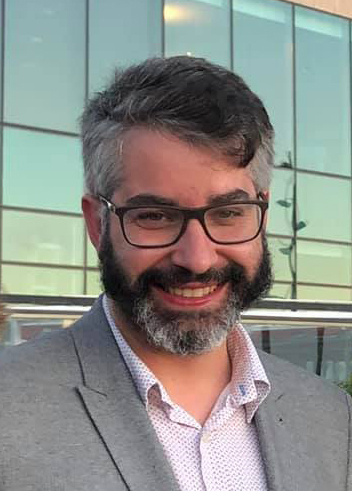
Joao Frias
João Frias is a marine researcher working in marine litter and microplastic pollution since 2008. His work is primarily in environmental sampling, laboratory processing, harmonisation of methodologies and ecotoxicology. Recently his research interests have expanded to include stakeholder engagement, environmental psychology and Ocean literacy. He lives in Ireland since 2017, where he has contributed to establishing baseline concentrations of microplastics in environmental compartments, and co-created and co-organised research projects on the plastisphere in different polymers. For more details about him, please visit www.joaofrias.com
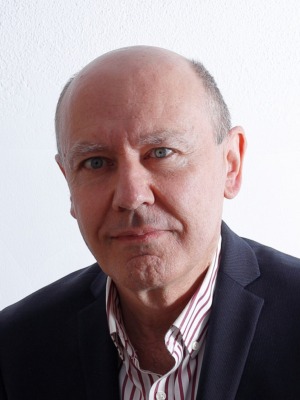
Roberto Rosal
PhD in Chemical Engineering and Full Professor at the University of Alcalá, Madrid. His research spans various topics within Environmental Chemistry and Materials Science, with main interests in the fate and removal of pollutants and micropollutants from water and wastewater, as well as the toxicity assessment of emerging pollutants, mixtures, and by-products. In recent years, his work has focused on the occurrence and environmental impact of micro- and nanoplastics and related chemicals. Prof. Rosal has actively contributed to a numerous of research projects and contracts and has an extensive portfolio of authored research articles published in high-impact journals (Scopus H-index 57). He regularly serves as an evaluator for several national and international funding agencies, including the European Research Executive Agency and the European Innovation Council and SMEs Executive Agency, and acts as an editor for several journals.
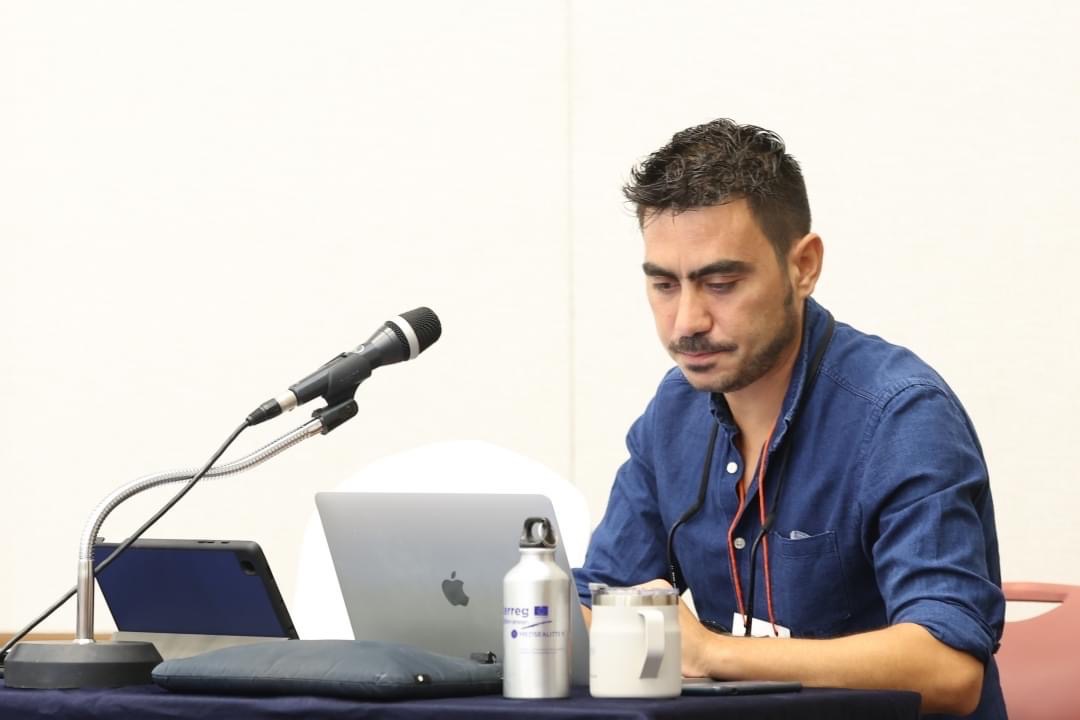
Giuseppe Suaria
Giuseppe Suaria is a Senior Researcher at the Institute of Marine Sciences of the Italian National Research Council (CNR-ISMAR) in Lerici. His research focuses on the distribution, transport, composition, and accumulation of plastic pollution in oceanic environments, as well as the harmonisation of monitoring methods for macro- and microplastics in marine ecosystems. He has participated in 34 oceanographic expeditions across the Mediterranean, Atlantic, Black Sea, Arctic, and Antarctic regions, totalling well over 550 days of fieldwork at sea. He has reviewed more than 500 scientific articles and serves as associate editor or guest editor for several journals and special issues on marine litter and environmental sustainability. He frequently evaluates PhD theses and international funding proposals and has received awards for scientific communication. He is actively involved in European and global research networks on marine debris and ocean health and his work provides scientific foundations for mitigation strategies and environmental policy. In 2025, he was appointed to the Steering Committee of the Integrated Marine Debris Observing System (IMDOS), where he co-leads efforts to design a global monitoring system for plastic pollution.
